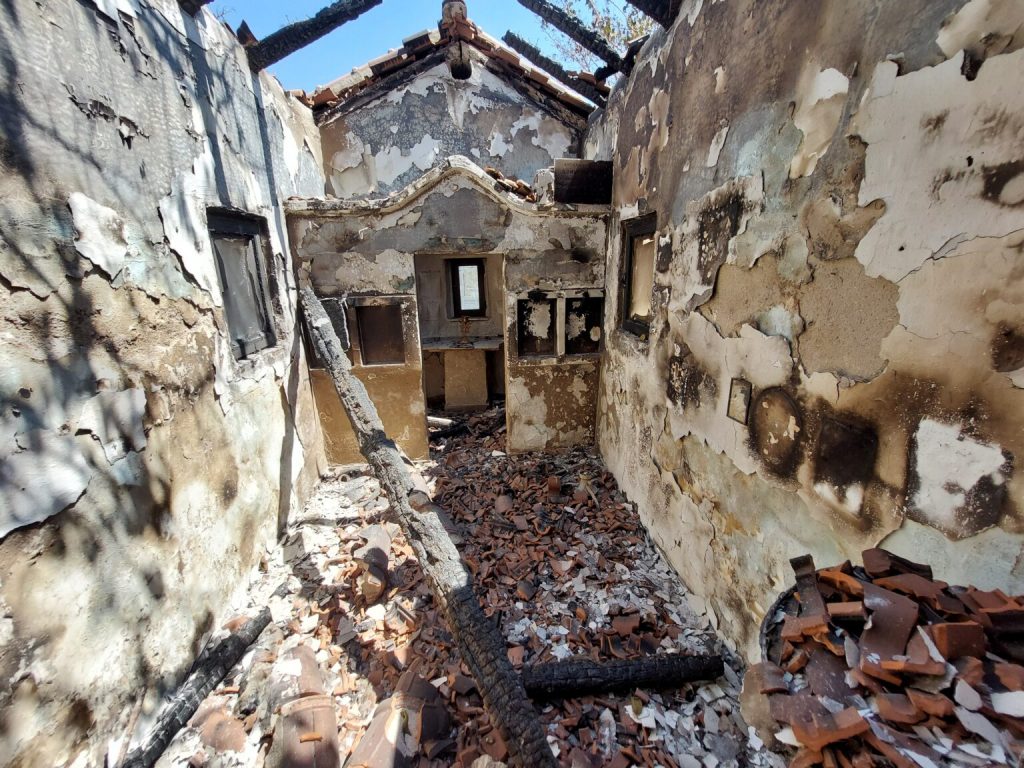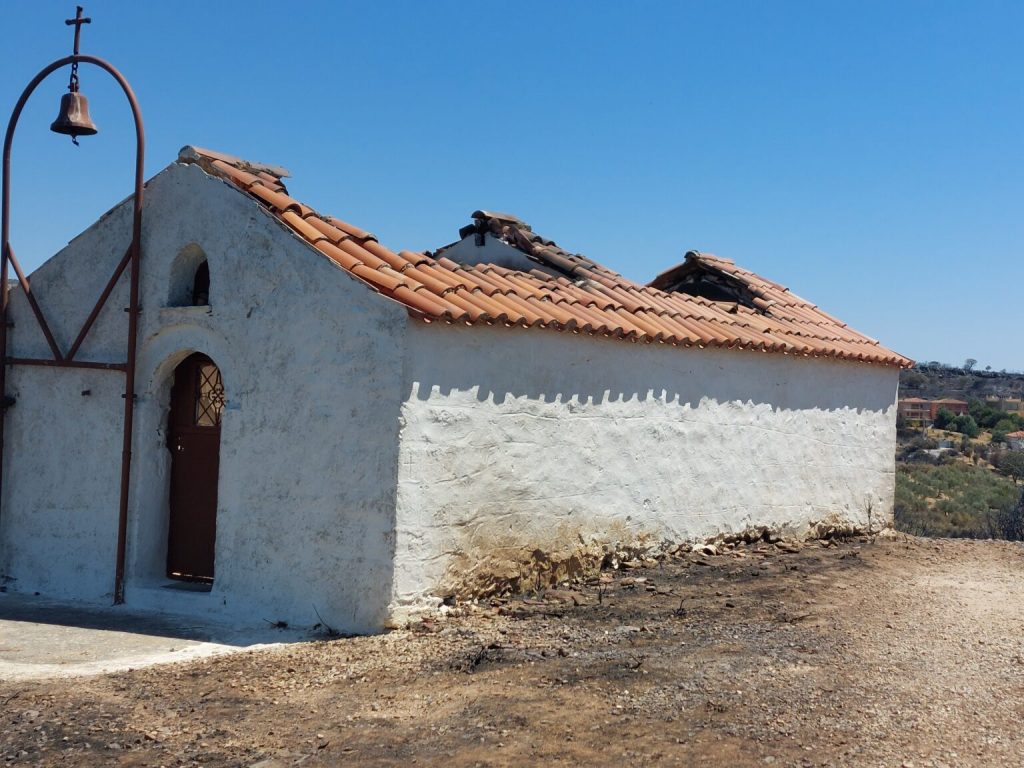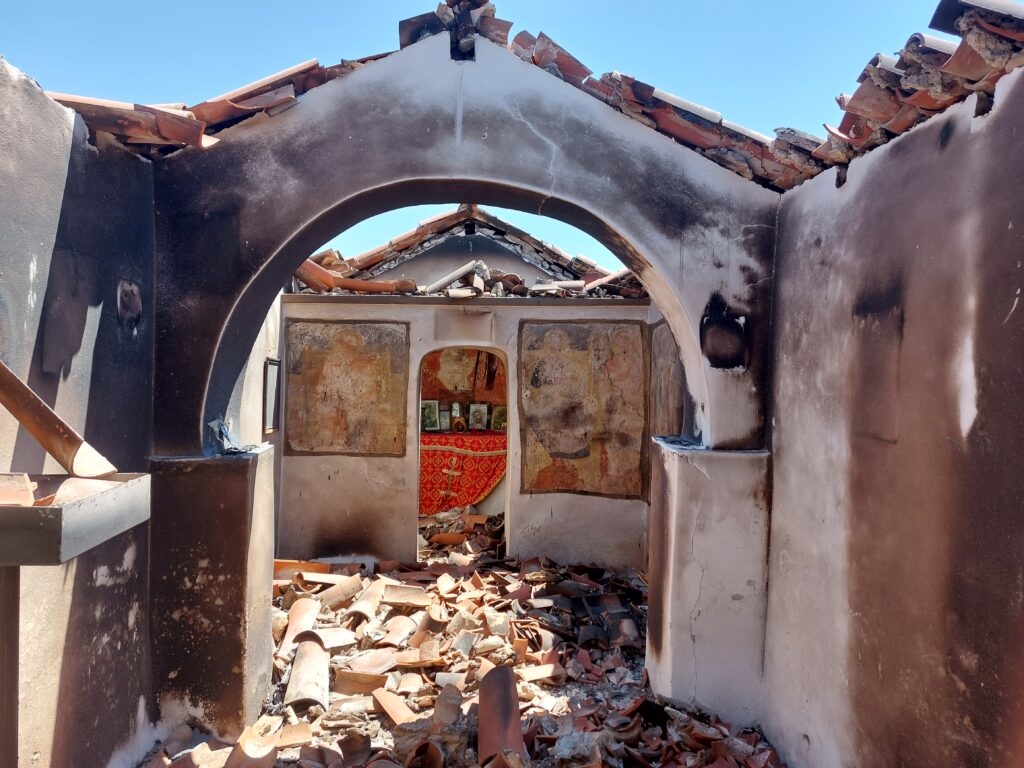Greece’s culture ministry on Tuesday announced findings of urgent inspections of archaeological sites, preserved and historical structures, places of worship, monuments and museums in parts of NE Attica prefecture and extreme northern Athens affected by last week’s multi-front and destructive wildfire.
No damage was ascertained except, sadly, for two post Byzantine-era chapels that sustained significant damage.
The near-total destruction of the small chapel of the Aghii Apostoli (Holy Apostles), located within the perimeter of the archaeological site of Oenoe (Oinoe), in the Marathon municipality, was the worst instance. A second church, Aghios Athanassios (St. Athanasius), near the village of Kalentzi, in the same township, sustained a lesser amount of damage.

The chapel of the Aghii Apostoli (Holy Apostles) is located within the perimeter of the archaeological site of Oenoe (Oinoe), in the Marathon municipality
Several eponymous and noted archaeological sites exist to the northeast of Athens proper, including the Marathon battle ground, its adjacent tumulus and a modern museum. Further to the north, and nearer to the settlement of Varnavas, where the conflagration erupted last Sunday, lies the Rhamnous site (modern Ramnounda), well-known during antiquity and throughout the Roman era for a sanctuary dedicated to the “avenging goddess” Nemesis.

The chapel of Aghios Athanassios (St. Athanasius), near the village of Kalentzi, in the Marathon township.
Other notable sites are the remains of ancient Aphidna or Aphidnae, one of the 12 ancient settlements of pre-Classical Attica, near today’s town of Kapandriti, along with remnants of two sanctuaries along the slopes Mt. Dionysos, dedicated to the Olympian gods Dionysus and Apollo.



